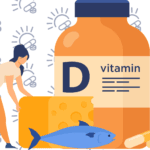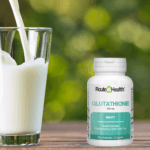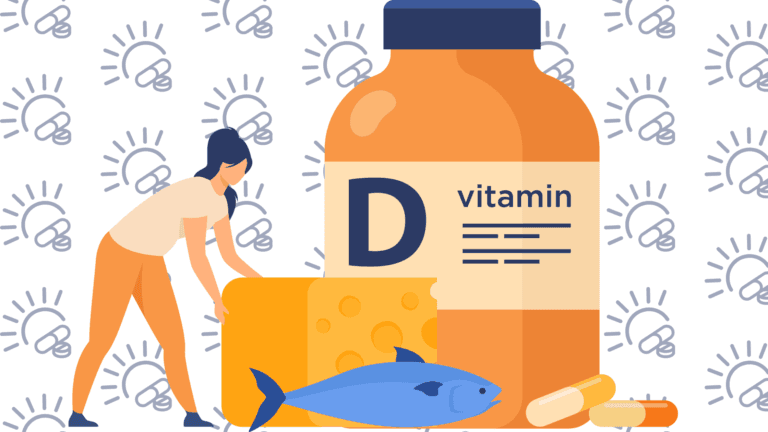
Berdi
urinary Track Health
Imagine this: dinnertime descends, and your child pushes away a plate overflowing with colourful vegetables. This scene, familiar to many parents, raises a crucial question: are they getting the vital nutrients they need for healthy growth and development? This is where children’s chewable vitamins, also known as multivitamin gummies, can play a vital role.
Ensuring children receive adequate nutrition is a common challenge for parents, especially when dealing with picky eaters or busy schedules. Children’s chewable vitamins can bridge the nutritional gap, ensuring your child gets essential nutrients in a fun and tasty way. This blog explores why choosing multivitamin gummies is a wise decision for your child’s health and well-being.
A child’s body is a growing powerhouse, constantly building bones, muscles, and brain cells. To fuel this process, they require a balanced diet rich in essential vitamins and minerals. These micronutrients act as the building blocks for healthy development, impacting everything from immunity to cognitive function. Unfortunately, picky eating habits and busy lifestyles can make it challenging to ensure children consistently consume all the nutrients they need through diet alone. Proper nutrition during childhood is crucial for growth, development, and overall health. Nutrients play vital roles in physical growth, cognitive development, and immune function. A deficiency in essential vitamins and minerals can lead to various health issues, affecting a child’s quality of life and future health outcomes.

If your child is a picky eater or simply fails to receive the right nutrients through their diet, here’s where children’s chewable vitamins step in, offering a convenient and enjoyable way to bridge potential nutritional gaps:
Children’s chewable multivitamins can effectively bridge nutritional gaps, ensuring adequate intake of essential vitamins and minerals. These supplements are particularly beneficial for picky eaters or those with dietary restrictions, providing nutrients that may be lacking in their regular diet.
Research indicates that children’s diets often fall short in key nutrients like vitamins A, D, E, and calcium. Chewable multivitamins can help meet the recommended dietary allowances (RDAs) for these nutrients. For example, vitamin D is crucial for bone health and immune function, yet many children do not get enough from diet and sunlight alone. According to Oregon State University, most children in the US don’t meet the recommended daily intake for all essential vitamins. This highlights the prevalence of nutritional deficiencies even in developed countries. Children’s multivitamins can help address these shortfalls by providing a daily dose of key vitamins and minerals.
A study by the Journal of Nutritional Science highlights the role of multivitamins in supporting overall health and development, especially in children with inadequate dietary intake. Additionally, chewable multivitamins are designed to be palatable and easy to consume, increasing compliance among children.
However, it’s important to note that while multivitamins can supplement the diet, they should not replace a balanced and varied diet. Over-reliance on supplements can lead to excessive intake of certain nutrients, which can be harmful.

Vitamins C, D, and zinc play a crucial role in supporting a child’s immune system, which is their first line of defence against germs and illnesses. The World Health Organization shows that vitamin D supplementation can reduce the risk of upper respiratory tract infections in children. Children’s chewable vitamins formulated with these essential nutrients can bolster their immune defences and keep them healthy throughout the year.
These multivitamins can, therefore, bolster children’s immune systems, helping to protect against common illnesses and supporting overall health.

Calcium and vitamin D are the cornerstones of strong, healthy bones. According to the National Institute of Arthritis and Musculoskeletal and Skin Diseases, ensuring adequate intake of these nutrients during childhood is crucial for optimal bone mineral density, which reduces the risk of osteoporosis later in life. Children’s chewable vitamins containing these essential elements can contribute to the development of a strong skeletal system.
Brain development is rapid during childhood, and certain vitamins and minerals play a vital role in this process. A 2017 study published in Clinical Nutrition suggests that deficiencies in iron, iodine, and B vitamins can negatively impact cognitive function in children. Multivitamin gummies formulated with these essential nutrients can support healthy brain development and cognitive function.

Vitamin A is crucial for maintaining healthy vision, especially night vision. A study in the American Academy of Ophthalmology found that vitamin A deficiency is a significant contributor to childhood blindness globally. Children’s chewable vitamins containing vitamin A can help ensure proper vision development.
B vitamins are essential for converting food into energy, which is crucial for active children. Deficiencies in B vitamins can lead to fatigue and decreased energy levels in children. Children’s chewable vitamins formulated with B complex vitamins can help maintain optimal energy levels throughout the day.

Biotin and other B vitamins play a role in maintaining healthy hair, skin, and nails. Biotin deficiency can manifest as hair loss and brittle nails in children. Children’s chewable vitamins containing these essential nutrients can support healthy hair, skin, and nails.
Route2Health’s Kid’s One Daily is a delicious, chewable multivitamin for kids in Pakistan. It is formulated specifically for children. It contains a comprehensive blend of essential vitamins and minerals, including vitamins A, C, D, E, and the B complex, to support your child’s overall health and well-being. Kid’s One Daily is free from artificial colours, flavours, and preservatives, and comes in fun, fruity flavours that children will love.
While a balanced diet should always be the primary focus for children’s nutrition, children’s chewable vitamins can play a valuable role in filling nutritional gaps and ensuring they receive the essential vitamins and minerals they need for healthy growth and development. By understanding the importance of these micronutrients and choosing a high-quality multivitamin gummy, like Route2Health’s Kid’s One Daily, you can give your child the nutritional foundation they need to thrive.
While a balanced diet is ideal, picky eating habits and busy lifestyles can lead to nutritional gaps. Children’s chewable vitamins can help bridge these gaps and ensure your child receives essential vitamins and minerals.
Consult your paediatrician before introducing any supplements to your child. Generally, children as young as 2 years old can take children’s chewable vitamins but always follow your doctor’s specific advice.
Yes. Exceeding the recommended dosage can lead to vitamin toxicity. Always follow the recommended dosage instructions on the label and consult your paediatrician if unsure.
If your child frequently experiences fatigue, has weak immunity with frequent illnesses, or exhibits signs of brittle nails or hair loss, consult your paediatrician to discuss if children’s chewable vitamins could be beneficial.
Look for a product containing a comprehensive range of vitamins and minerals suited for children’s needs. Choose high-quality, bioavailable ingredients in a fun, flavourful form that appeals to children. Opt for options free from artificial colours, flavours, and preservatives.











©2023 Route2Health®️
NTN: 2229383
AN ASSOCIATED COMPANY OF HIGHNOON LABORATORIES
STRN: 0301999937728

WhatsApp us
